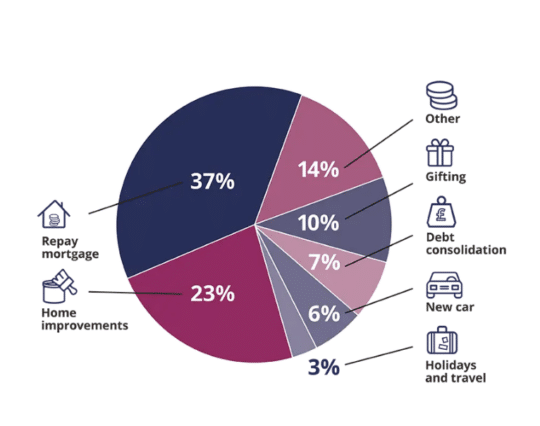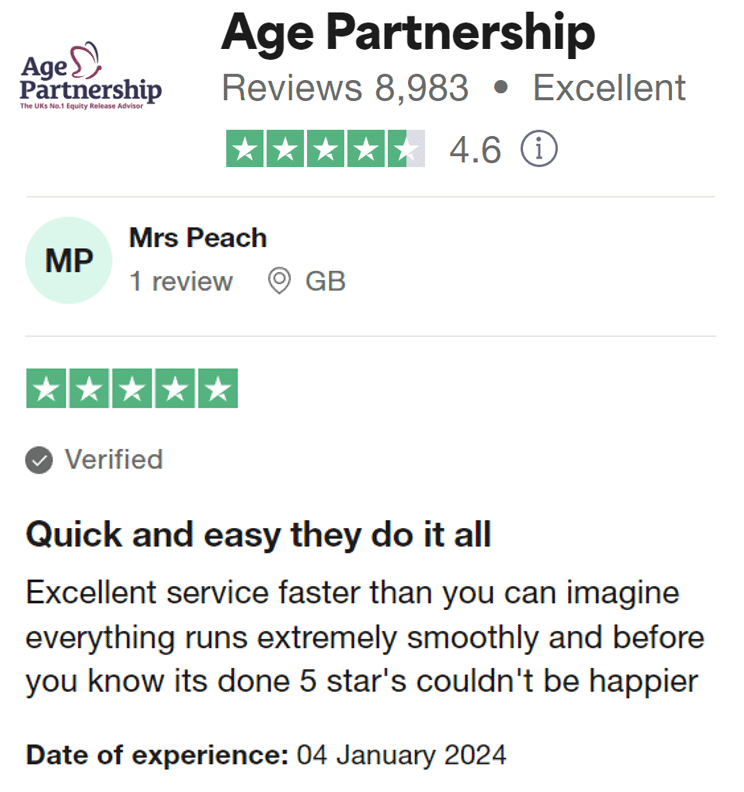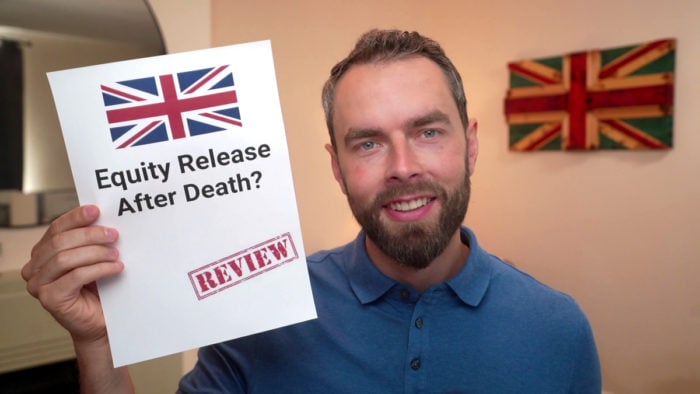How Much Does Equity Release Cost? Complete Analysis
Our preferred equity release adviser is Age Partnership. For free and impartial money advice you can visit MoneyHelper.

Our preferred equity release adviser is Age Partnership. For free and impartial money advice you can visit MoneyHelper.
“Are you trying to understand the cost of equity release? It can feel a bit tricky with all the different fees and charges. But don’t fret! We’re here to clear things up for you.
Every month, more than 7,000 people visit our website for guidance on equity release. We know it can be a bit puzzling, so in this easy-to-read guide, we’ll cover:
- What equity release is and who can apply for it.
- How you can get a fair quote.
- What equity release is used for.
- The average interest charged on equity release.
- How much you have to pay back after an equity release.
We understand that you might be worried about any hidden costs or how it might change your tax, but rest assured that we’re here to help you every step of the way. Together, we can make sure you make the best decision for your future.”
Let’s dive in.
What are the costs and fees involved?
Aside from the actual cost to get an equity release plan, there are other costs to consider when setting up the plan and using professional services.
It is a requirement to get independent financial advice before agreeing to release equity. These services can sometimes be free of charge, but the very best and recommended equity release advice services come at a cost. These paid-for services also help to find you a deal and make an application – just like a mortgage broker would.
Solicitors or advisers will sometimes charge a fixed fee, but more often than not, they charge a fee that is a percentage of your loan, ranging from 1-3%. So, if you were taking out £50,000 in equity as a lump sum, you may have to pay legal costs from £500 to £1,500 in most cases. This may or may not include an application fee.
The unseen costs!
There might be some unseen costs of equity release relating to the money you are no longer entitled to receive. By receiving a large sum of money, your newfound wealth could mean you are no longer eligible to receive some means-tested benefits, including Universal Credit and Pension Credit (not your State Pension!).
For example, for every £500 you own above £10,000 will reduce your Pension Credit entitlement by £1. If you no longer receive Pension Credits, you might not qualify for a council tax reduction either.
There may be ways around this issue that your solicitor or adviser can help with. For example, you might decide to use a drawdown equity release plan instead of receiving a lump sum that puts you above the threshold to receive some benefits.
» TAKE ACTION NOW: Find out how much equity you could release
What is the average interest?
At the time of writing and subject to change, the average interest rates on lifetime mortgages in the UK range from 2-10%. The interest charged differs between lenders and is based on your age and your property. Choosing a lifetime mortgage as late as possible and releasing a smaller amount for equity will help you secure a lower interest rate.
How much do I pay back?
How much you pay back on equity release depends on the type of equity release product you choose and specific circumstances.
The percentage of your property’s future sale that you pay back with a home reversion plan is fixed no matter how much time passes. This is not the same as how much you pay back, because fluctuating property prices will determine the exact figure. You may agree to give up half of the property value today, which may be £75,000 of a £150,000 property. But in the future your property could be worth £200,000, meaning, you have to pay back £100,000.
With a lifetime mortgage, the exact figure you pay back depends on the loan amount, interest rate, and how long until you die or move into care. To give you an example of how expensive they can become, taking out £65,000 with a 6.4% interest rate over 12 years rolls into debt worth nearly £137,000.
Trying to get out of any equity release plan is extremely expensive due to early repayment costs.
Use a calculator for help!
The financial advice you must receive before taking out an equity release plan should explain the full costs of a proposed plan. You should also be able to see the full and long-term costs of equity release by using an equity release calculator.
How equity release could help
More than 2 million people have used Age Partnership to release equity since 2004.
How your money is up to you, but here’s what their customers do…
Find out how much equity you could release by clicking the button below.
In partnership with Age Partnership.
Do you have to pay tax?
The money you receive as part of an equity release scheme is not subject to any type of tax. Because there are no repayments, you may feel like you have sold part of your home in advance. But the money is officially a loan and credit you receive from lenders is not subject to tax.
Will it affect inheritance tax?
Equity release can have an effect on the inheritance tax your estate and beneficiaries may owe. In fact, equity release can both increase or mitigate inheritance tax liability. It is best to discuss this when you receive financial advice.
If you have a short life expectancy and are thinking about using equity release to give money to loved ones, be aware that financial gifts within seven years of your death can still be subject to inheritance tax.
Can you move home afterward?
The Equity Release Council states that all of its members must allow homeowners to move to a suitable home and take their lifetime mortgage with them.
For the home to be viewed as suitable, it must be of equal or higher value (unless some of the loan is paid off) and the property must be just as easy to sell on the market. Unique homes may not be seen as just as easy to sell, such as extremely remote homes.
Join thousands of others who release equity
Age Partnership have helped over 2 million people release equity from their home.

Mrs Wareham
“I am more than pleased to have taken out Equity Release with Age Partnership.”
Reviews shown are for Age Partnership. Search powered by Age Partnership.
Still considering a lifetime mortgage?
If you are still considering a lifetime mortgage after discovering the arrangement fee, the true costs of these plans, and more, you can learn the finer details about them on MoneyNerd. Check out one of our other equity release guides for further examples, definitions, and explanations.
Things to consider
Equity release will involve a home reversion or a lifetime mortgage, which is secured against your property and will reduce the value of your estate and impact funding long-term care. Our equity release partner, Age Partnership provides a personalised illustration to explain the full details. The money you release, plus the accrued interest is then repaid when you die or move into long-term care. Advice is required before proceeding with equity release and any existing mortgage must be repaid. Age Partnership provide initial advice for free and without obligation. Only if your case completes would Age Partnership’s advice fee of £1,895 be payable. Other lender and solicitor fees may apply.


